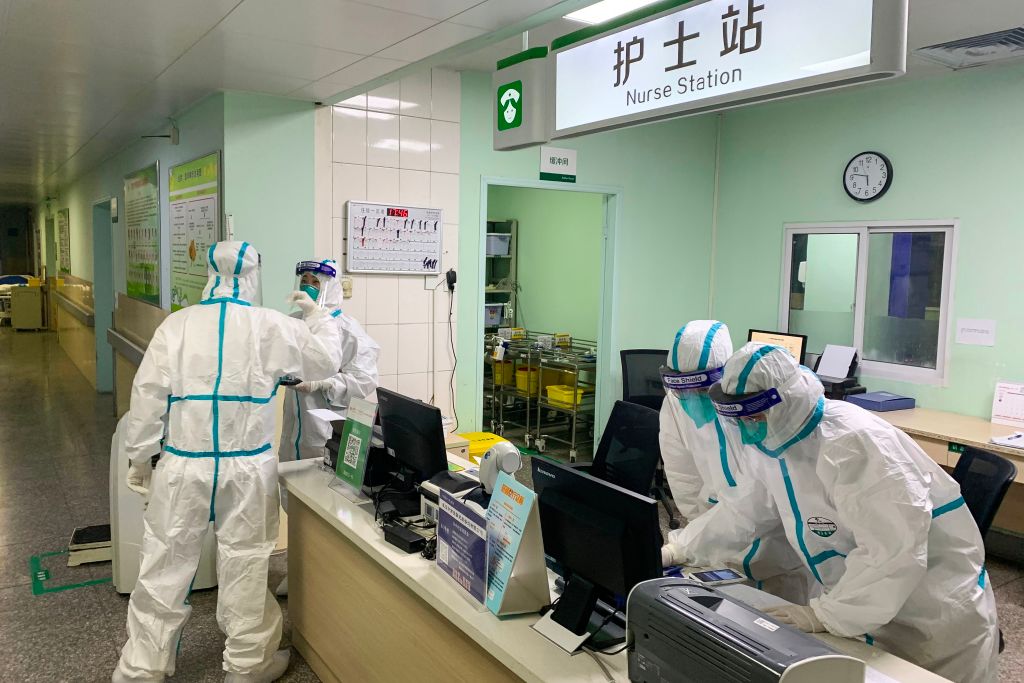
China has applied for a new patent on an experimental Gilead Sciences Inc. drug that its scientists believe might fight the coronavirus.
It has applied for a patent for the use of the drug, know as remdesivir, to treat the novel coronavirus. The move is a sign that China views Gilead’s therapy as one of the most promising candidates to fight the outbreak that has now claimed almost 500 lives. A patent battle may affect Gilead’s control over the drug in China.
Sign up for our daily coronavirus newsletter by clicking on this link, and please send any tips, leads, and stories to virus@time.com.
While Gilead’s experimental drug isn’t licensed or approved anywhere in the world, it is being rushed into human trials in China on coronavirus patients after showing early signs of being highly effective.
The patent application was made on Jan. 21, according to a statement posted on the website of the virology institute in Wuhan, the central Chinese city at the epicenter of the epidemic. Scientists there have found Gilead’s remdesivir, and chloroquine, an 80-year-old malaria drug, “highly effective” in laboratory studies at thwarting the novel coronavirus, they said Tuesday in a paper in the journal Cell Research. The two drugs’ efficacies on humans required further clinical tests, the institute said in the statement.
China is capable of manufacturing chloroquine and now wants access to remdesivir. It is not clear if or when China’s intellectual property authorities will approve the institute’s application.
Gilead’s experimental drug is at present entering clinical trials in China on patients with the novel coronavirus. The company is shipping enough doses to treat 500 patients and is ramping up supply in case the clinical trials work.
Remdesivir is being tested in two trials in China in patients with moderate and severe symptoms of the novel pathogen, said Merdad Parsey, Gilead’s chief medical officer.
The Wuhan institute said in its statement that it made the patent application out of national interest, and won’t exercise its patent rights if foreign pharmaceutical firms work together with China to curb the contagion.
–With assistance from Jason Gale and Robert Langreth.
More Must-Reads from TIME
- Inside Elon Musk’s War on Washington
- Meet the 2025 Women of the Year
- The Harsh Truth About Disability Inclusion
- Why Do More Young Adults Have Cancer?
- Colman Domingo Leads With Radical Love
- How to Get Better at Doing Things Alone
- Cecily Strong on Goober the Clown
- Column: The Rise of America’s Broligarchy
Contact us at letters@time.com